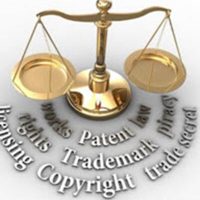Keywords And Trademark Infringement

It is easy to forget how often today’s search engine optimization (SEO) techniques and keyword advertising can end up in court, often over matters related to intellectual property. Such was the case with two large eyeglass manufacturers, and the use of keywords.
Keyword Use
If you were advertising for your company, you probably would know better than to use your competitor’s name in your advertisements (although there are times when you can fairly make passing mention of another company’s name or trademarks). You would not purposely use your competitor’s slogans or names in your own advertising to promote your own products or services.
But you may not think twice about using your competitor’s name or slogan in keyword advertising online.
Keyword advertising can work in a number of different ways, but in its simplest form, you are telling a search engine like Google that when a user puts in a name, word or phrase, that you want that customer to come up with your business’ website.
So, if you were selling hamburgers, you may want keywords like “lunch,” “meat,” “barbeque” or “burger.” When a customer types those words into Google, your website comes up. But could you use terms like “Big Mac” or “Whopper”—terms that are obviously owned by, or are the property of, another company?
Keywords – Is it Advertising?
On the one hand, you aren’t advertising anything to the general public or pretending that you own anybody else’s names or intellectual property—you’re just telling a search engine that when a customer puts in A, the customer should get B. On the other hand, a customer who types “Big Mac” in Google and gets your hamburger company could easily end up quite confused over who, exactly, owns the word or trademarked phrase “Big Mac.”
Eyeglass Companies End Up in Court
This is the exact dispute that two large eyewear companies ended up involved in.
Glasses maker Warby Parker was recently sued when it used the term “1-800 Contacts” as a search engine phrase when the company started to branch out into selling contact lenses. This was despite the fact that 1-800 Contacts is a separate company that owns the trademark to “1-800 Contacts.”
The court said there was no confusion, saying that customers who search “1-800 contacts” and who get Warby Parker’s website are unlikely to think that they are getting the company 1-800 Contacts. The court noted that Warby Parker’s website has its name on the site, and that contact lens purchasers likely would take the time to read the site and know who they are buying from.
Be Careful With Keywords
The case is highly likely to be appealed, but many courts have shied away from finding infringement just based on the use of keywords (assuming other things, like websites that the keywords lead to, don’t infringe). Regardless of the result, businesses are reminded that all advertising matters—not just that which is in the public eye–when it comes to intellectual property.
Call the West Palm Beach copyright litigation attorneys at Pike & Lustig today if you have a question about a legal issue about an intellectual property matter.
Sources:
reuters.com/legal/litigation/warby-parker-defeats-1-800-contacts-lawsuit-over-keyword-ads-2022-06-29/
searchengineland.com/warby-parker-dodges-1-800-contacts-lawsuit-over-search-results-website-386171
